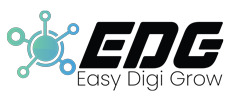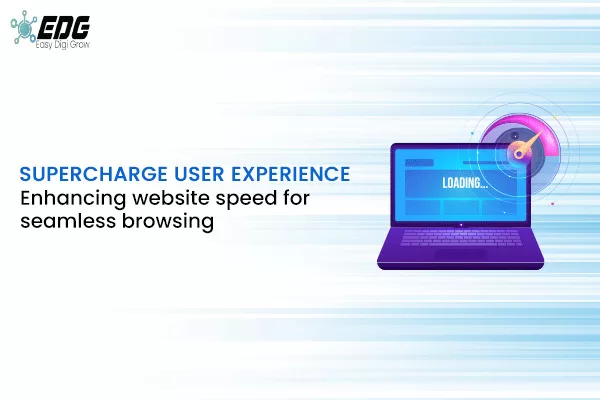Imagine this: You come across an interesting website, attracted by promises of exciting content or a great product from a Top Rated Website Design And Development Service Provider. With keen anticipation, you click on the hyperlink, ready to dive in. But, a slow loading screen appears, Which seems to drag on like an eternity. Tick…tick…tick… frustration sets in, and your enthusiasm disappears. Sensibly recognizable in today’s hyper-connected society, speed is the name of the game when the scope of significance is narrower than ever. It’s not confidential that website speed can make or break your online status.
In the blink of an eye, users decide whether to stop and find that dreaded button or press that button, never to return. Buckle up, because, on this blog, we are about to reveal the secrets and dive into the interesting world of website velocity optimization.
Why does website speed matter?
Website speed is critical to the success of your online presence. As a Best Website Design And Development Service Company with years of experience, here are some persuasive goals based on why we believe it is critical to improve website speed:
Better user experience: When customers visit a website, they expect it to load quickly and provide them with the data they want. Slow-loading websites commonly annoy customers and may result in complete site rejection.
Low Bounce Rates: When users leave your website without attracting to any of its pages, this is an example of a high bounce rate. Slow-loading websites often contribute to high jump charges, as customers become bored and look for faster alternatives.
Better search engine rankings: Search engines, including Google, take into account website speed as one of the rating elements. Websites that load faster are more likely to score higher in search engine results, resulting in better visibility and expanded natural visitors.
Increased Conversion Rates: Websites with faster loading speeds usually enjoy higher conversion citations. When your website is faster, customers are more likely to interact, make a purchase, or inquire about your content.
Mobile Optimization: The optimization of website speed has become increasingly critical as the emphasis on mobile surfing continues to grow. Because mobile users have limited bandwidth and slow connections, it is essential to have websites that load quickly to fulfill the requirements of this target demographic.
10 factors affecting website speed
To accurately optimize the speed of a website, it is necessary to have a solid estimation of the factors that can influence the website’s overall execution.
- Hosting Provider: Choosing a responsible hosting service is crucial to guarantee the maximum possible website speeds. A Top Rated Website Design And Development Service Provider that offers constant servers, solid-nation drives (SSD), and robust arrangements to handle high volumes of traffic.
- Design Development: The design and development elements of your website can have a huge impact on its speed. Reduce the number of huge images, superfluous plugins, and confusing coding.
- Image Optimization: In a handful of cases, images are one of the elementary factors that influence websites loading slowly. You may improve the superiority of your photographs by reducing them without losing their original quality. Use image formats like JPEG or PNG, and remember lazy loading strategies to load photos as the consumer scrolls.
- Caching Technology: Implementing caching techniques can dramatically improve the speed of a website. Browser caching allows elements of your website to be saved locally, reducing the need for frequent downloads. Additionally, server-side reserving, which may include opcode reserving or content delivery network (CDN) caching, has the potential to increase overall functioning.
- Content Delivery Network (CDN): Consuming a content delivery network (CDN) enables you to separate the content of your website over various servers placed all over the world. A content delivery network (CDN) can shrink expectancy and speed up website loading times by gathering and delivering material from servers that are revealed closest to the buyer’s location.
- Minification and Compression: It is advised that you decrease the HTML, CSS, and JavaScript files of your website to get rid of any irrelevant characters, spaces, and comments. In addition, enable density on your server to reduce the size of records and cut down on the amount of time required for data transfer.
- Database Optimization: If your website depends on a database, optimizing it can improve website speed. Regularly simplify unnecessary records, remove unused plugins or themes, and optimize database queries to reduce load instances.
- Mobile Responsiveness: Ensure that your website is approachable to mobile devices and that it is optimized for mobile strategies. Apply responsive website design techniques to provide the maximum gratifying consumer experience across specific display screen sizes and resolutions.
- Content Management System (CMS): If you use a CMS like WordPress, keep it up to date with the ideas and plugins you use. Older versions may contain vulnerabilities and affect the overall performance of the website.
- External Scripts and Embedded Media: Evaluate external scripts and embedded media used for your website. Minimize their use and choose lighter options whenever possible. Third-Party Resources, Scripts, and media may initiate additional delays and impact website speed.
10 Best Practices to Optimize and Speed Up Your Website Performance
- Reduce HTTP requests: Reduce the variety of factors on your web page that require separate HTTP requests, including scripts, style sheets, and images.
- Optimize Images: Compress and optimize images to reduce report size while maintaining quality. Consider using photo formats like JPEG or WebP.
- Enable browser caching: Set caching headers to educate the consumer’s browser to persist persistent assets locally, reducing the need for frequent downloads.
- Use a content delivery network (CDN): Distribute your content globally for faster load times, recommended by any Best Website Design And Development Service Company.
- Minify CSS and JavaScript: It is possible to shrink the size of the file and improve loading times by amputating feedback, spaces, and characters that are not essential from CSS and JavaScript documents.
- Enable Gzip compression: Compress your website documents using Gzip, a report compression set of rules that reduces the size of information sent from your server to the person’s browser.
- Implement lazy loading: Load photos, videos, and other media content only when the person scrolls or interacts with them, reducing initial page load time.
- Optimize Code: Make sure your website code is simple, concise, and efficient. Remove unused or unnecessary code, and don’t forget to use small variations of libraries and frameworks.
- Prioritize content above the fold: Load and show the most important content and elements above the fold (visible space) of your web page first, allowing users to connect to important content without delay.
- Monitor and Optimize: Regularly analyze your website performance using tools like Google PageSpeed Insights or GTmetrix. Identify areas that need development and maintain optimizations to maintain a quick-loading website.
If you are looking for high-quality website design services or an agency in Delhi/NCR that specializes in optimizing website performance, applying those top techniques can help you improve your website speed and average user experience. You can visit easydigigrow.com
How to Choose the Best Website Speed Testing Tool
There are several tools available to test your website’s speed, and it is difficult to choose the best one. Google Pagespeed Insights, GTmetrix, Pingdom, and Webpage Test are among the most popular mixtures. These tools analyze exceptional aspects of your website’s overall performance, including page load time, record size, and server response time. A Top Rated Website Design And Development Service Provider will often use a combination of these tools for comprehensive insights. It is encouraged to implement a combination of tools to gain comprehensive insight into the speed and performance of your website.
Key metrics to consider:
When performing a website speed assessment, several metrics provide valuable statistics about your site’s overall performance. These include:
- Page Load Time: The ordinary quantity of time it takes for a page to entirely load.
- Time to First Byte (TTFB): The amount of time it takes for the computer to initiate sending communication.
- Render start time: The moment when the browser starts, which involves rendering the website.
- Number of requests: The typical number of server requests made to load the website.
- File size: The size of the character documents (HTML, CSS, JavaScript, photographs, etc.) that make up a webpage.
- Interaction time: The time it takes for a website to become interactive, allowing customers to engage with its elements.
Don’t let slow-loading websites hinder your success
Speed is crucial for a successful website. As a Best Website Design And Development Service Company, EasyDigiGrow specializes in building high-performance websites with fast load times. Our focus on both design and functionality ensures a competitive advantage that drives real results.
As a leading website development agency, EasyDigiGrow is dedicated to making a great impact. We focus on creating high-overall performance websites that not only attract users with attractive design and content but also provide lightning-fast loading speeds. With our knowledge, you can ensure that your website stays away from the competitors, attracting visitors and utilizing conversions.
In today’s digital world, speed matters. Trust EasyDigiGrow—your Top Rated Website Design And Development Service Provider—to keep you ahead with faster load times, better engagement, and higher conversions.
 seolounge
seolounge


